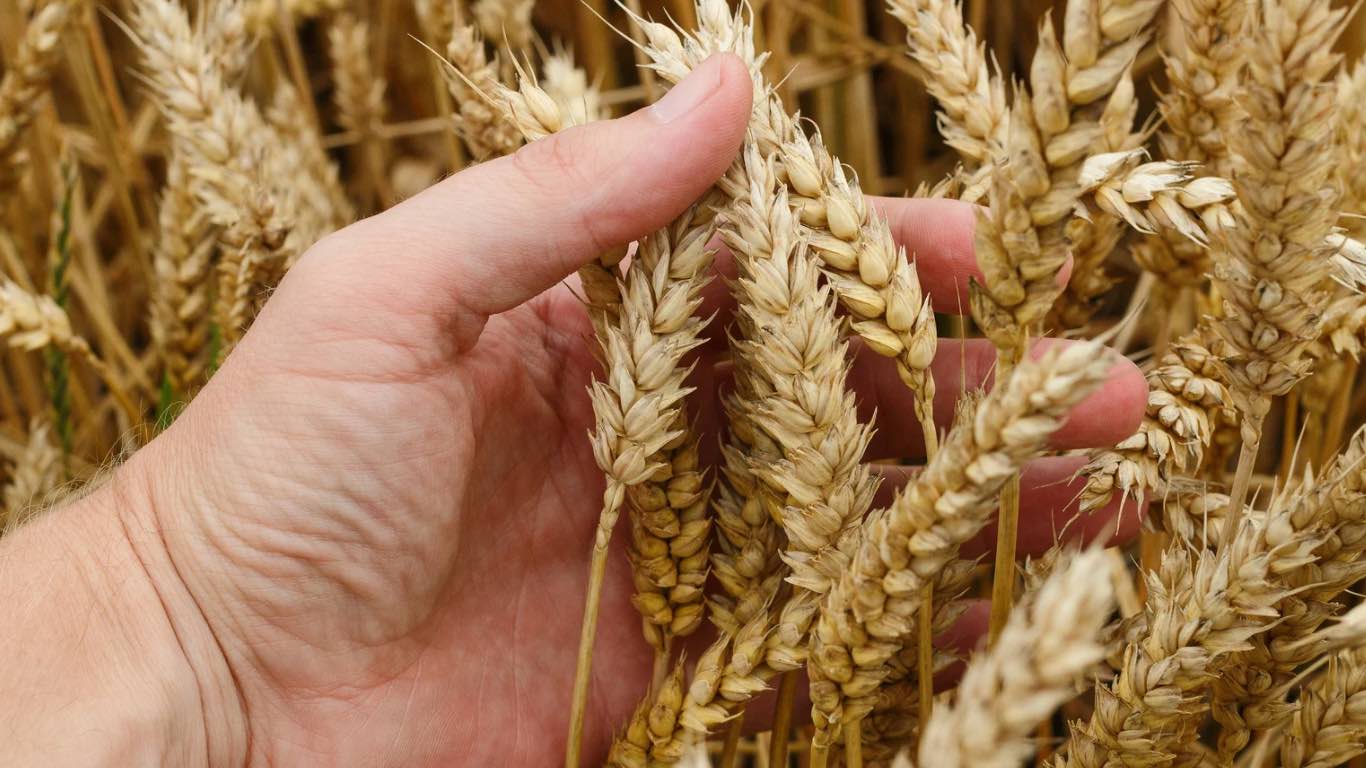
"GRAIN WAR" - A GOLDEN OPPORTUNITY FOR BROKERS IN THE GLOBAL WHEAT MARKET
Following Russia and Kazakhstan, India also announced restrictions on wheat exports, causing a new shock to the flour and grain market.
Such actions by countries that hold leading positions in wheat production and export have created chaos in the market and brought the price of grain closer to the price of gold. Meanwhile, Ukraine, which plays a key role in wheat exports, is embroiled in war this year, causing global concerns and driving up the price of this strategic product. This year, the price of wheat on the global market has risen by 60%.
India is the second-largest wheat producer in the world, but most of this grain is consumed domestically. Its exports amount to less than 10 million tons, which is not a significant share. Recently, India, citing drought, low wheat harvest, and the need to curb rising flour prices in the domestic market, suspended the export of this product. Domestic wheat prices have sharply risen in this densely populated country. India annually supplies wheat to countries like Indonesia, Israel, Oman, Nigeria, and South Africa.
Russia is another major global wheat exporter, accounting for 20% of the global market. Before the war, Ukraine held a 10% share of global wheat exports. However, the Russian invasion and the blockade of sea routes for Ukrainian wheat exports have led to rising wheat prices on the global market, causing concern among African countries dependent on this product.
Kazakhstan, which accounts for about 3% of global wheat exports, is in a different situation. Although the country is not involved in the war, like Russia and Ukraine, it has suspended wheat exports due to rising global prices and a 30% increase in domestic prices, observing the rise in wheat costs in other countries.
Meanwhile, European countries, known as the "Green Continent," control 50% of global wheat exports. North American countries, including the United States and Canada, hold 30% of the market. Mexico in Latin America has a 7% share, and Australia holds 6%. Meanwhile, Asian and African countries, home to the world's largest populations, account for only 2.9% and 0.1% of global wheat exports, respectively. This small share means that the food crisis will have a more significant impact on these countries.
The global wheat export market is worth $40 billion annually, with about $20 billion coming from European countries.
The other side of this debate concerns the role of brokers in the wheat market — the most essential product for the people of Earth. Recently, Ukrainian media reported that Russia, having seized Ukrainian wheat warehouses, transported about 500,000 tons of wheat by truck to Crimea, from where it was shipped to Syria, Lebanon, and African countries.
At the same time, Russia claims that the United States, Canada, and Poland are transporting and storing Ukrainian wheat under the pretext of delivering it to safe locations. Russian authorities have labeled this process a "grain war" and "food crisis creation," even arguing that the United States and Western countries are receiving Ukrainian wheat in exchange for financial and military aid. They claim that by storing it in warehouses, these countries cause the global price to rise, aiming to blame Russia for the market chaos and food crisis.
The ban on wheat exports has its supporters and opponents. Some are pleased with the rising prices, seeing it as a good opportunity for sales and increased profits. Supporters of the wheat export ban argue that it is necessary to stabilize domestic prices and prevent further price increases. Opponents, however, believe that rising prices are a good opportunity for exports and improving farmers' profitability.
Ashok Gulati, a prominent Indian economist and agrarian, says the government should allow farmers to take advantage of the rise in global prices. If the Indian government wants to fill its wheat reserves, it should offer higher prices to farmers, as many are currently holding back their products, waiting for better offers.
However, some experts believe that the suspension of wheat exports by the private sector will not help vulnerable countries and will only benefit black market brokers.
According to the International Monetary Fund, although Russia and Ukraine's share in global trade and production is relatively small, they are important suppliers of essential goods, particularly food and energy. The latest forecasts indicate that the crisis caused by the war between Russia and Ukraine could reduce global GDP growth by 0.7-1.3%, bringing it to 3.1-3.7% in 2022.
In summary, alongside the cold and hot wars, the "grain war" continues. Russia accuses Western countries of brokering the grain market, while the U.S. and Europe blame Russia for the rising prices by blocking Ukrainian wheat exports. Meanwhile, other countries and brokers are watching wheat prices on the global market, and the more wheat export restrictions are imposed, the higher the price rises, competing with gold and creating opportunities for wheat market brokers.
It seems that the price of wheat is already more valuable than gold because gold is not a basic human necessity, while wheat is a daily need. A negative report on this topic could trigger a new shock and panic among wheat-consuming countries, leading to further price increases.



